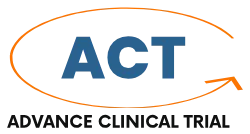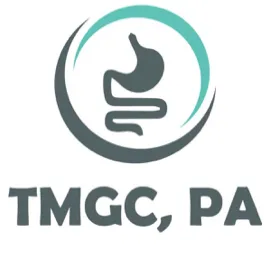Facility Information:

Advance Clinical Trial PLLC
14 Hospital Drive
Abilene, Texas 79606
Phone: 325 795 2100
Fax: 325 795 2113
ADVANCE CLINICAL TRIAL DEVELOPED TO PROVIDE ACCESS TO NEWLY APPROVED MEDICATIONS
The ACT research team strives to deliver the latest innovations in treatment for gastrointestinal & liver diseases. Advance Clinical Trial participate only phase 2 & 3 GI Clinical Research.
Clinical trials are sponsored by developing pharmaceutical company, following strict guidelines set forth by food & drug administration (FDA). Patients are under the direct supervision of our providers & are closely monitored under the strict protocol guidelines of clinical trial.
Advance Clinical Trial is committed to help everyone in need of our services. Our staff is available to assist you with any questions or concerns. Your time is important to us. Our staff works hard to make sure you are seen in a timely manner and that tests and/or procedures necessary are completed in a reasonable time.
Most of the time the sponsors of trials pay for your visits & tests. The staff at TMGC will inform you if the sponsor will not cover some procedure or visits.
WHAT IS A CLINICAL TRIAL?
Clinical trials are medical research studies performed on people to determine whether new medical treatments, therapies, or devices are safe & effective. Clinical trials find new ways to improve health care, develop new therapies, and preventive measures. Clinical trials demonstrate that a new drug is safe for people to utilize.
THE FOUR PHASES OF CLINICAL TRIALS:
Phase 1 – Typically involves a small number of healthy volunteer and is designed to test safety and tolerability. It takes months to finish.
Phase 2 – Involves studies with more participants to measure the drug's effectiveness & dosing information. This takes months to years to finish.
Phase 3 – Researchers conduct final efficacy studies in large groups of patients or very large groups of participants with specific diseases the trial drug intends to impact. In addition, they will compare results among those taking the experimental drug with results from those are taking placebo. After all these tests prove safe & effective, the FDA approves it for clinical use. This takes years to decades to finish.
Phase 4 – Monitor the drug's effectiveness, and safety in large, diverse population after the FDA has approved a drug or device. These trials also help doctors learn & tract any side effects with long term use. This is ongoing process.
WHY PARTICIPATE IN A CLINICAL TRIAL?
All other treatment options have failed, & no further treatment is available.
- To obtain access to advance treatments & protocols for their disease before the protocol becomes available to the general public.
- To help researchers learn more about the impact of the trial protocol to benefit others.
- To obtain access to medications & treatments required for their condition, free of cost throught the trial.
FAQs :
Clinical research has inherited risks & potential benefits. By phase - 2, researchers may have some initial idea of what types of adverse events patients are seeing. The more patients that enroll in research studies, it gives researchers a better idea of potential adverse events that may occur with a particular medication. It is important to note that pharmaceutical companies are required to report all adverse events to FDA, no matter how few patients actually had the event. Prior to participating in a clinical trial study, physician will go over in detail the potential risks involved.
Many trials are placebo controlled meaning the drug is getting tested against a "sugar pill". A patient in a placebo controlled trial certainly has possibilty of getting placebo but generally has more possibilty of getting drug. Important to note that patients in clinical trials are followed more closely than regular patients. Patents that are not doing well in a trial on placebo will often be swiched to the study medicaton.
Patients in a clinical trials are followed more closely than regular patients. Those are not doing well in a trial on placebo will often switched to the study medication. Those who are not doing well on the study drug may be dose escalated or often discontinued from the clinical trial.
Only if your current doctor is an investigator on the study for which you are a candidate. Otherwise, your research team will be in close communication with your current doctor to aid in an easy transition once the study is complete.
Many clinical trials are funded by pharmaceutical companies. Though the pharmaceutical industry funds the study, they are carried out by other groups to maintain fair balance. The US FDA oversees & regulates all studies involving human subjects.
While participating in a pharmaceutical sponsored clinical trial, all visits, study related procedures, & study related therapy are paid by pharmaceutical sponsor. A patient's insurance should never be billed for study related visits. In the event a patient has a second diagnosis, which is not part of the study, the patient or their insurance will be responsible for those visits.
This depends on the study. Some studies require a short visit every week while others require a longer visit every month. Study visit may last 15 minutes or as long as several hours in order to complete the required procedures set forth by the trial.
What to Expect?
1. The research staff will explain the trial in detail & gather more information about you.
2. Once you have had all your questions answered & agree to participate, you will sign an informed consent form.
3. You are further screened to make sure you qualify for the trial.
4. If accepted into the trial, we schedule the first visit called the "baseline" visit. The researchers may conduct cognitive or physical tests
during this visit.
5. You are then randomly assigned to a treatment or control group.
6. You & your family members follow the trial procedures & report any issue or concerns to researchers.
7. As needed, you will be scheduled for new cognitive, physical, or other evaluations & discussions with staff. At these visits, the research
team collects information about the effects of the intervention & your safety & well- being.
8. You continue to see your regular physician for other health issue throught the study.
Once the study is complete, researchers will measure the outcomes & assess the safety of the new treatment to determine its viability for use in other patients. Trial participants are informed of their results, including any side effects of the trial protocol.
CONTACT
If you would like to know more about this research center, please contact us by phone.
Advance Clinical Trial PLLC
Yogeshkumar t Patel MD - Principal Investigator.
Zarna Mehta MD - Administrative Medical Director.
14 Hospital Drive
Abilene, Texas 79606
Phone: 325 795 2100 | Fax: 325 795 2113


